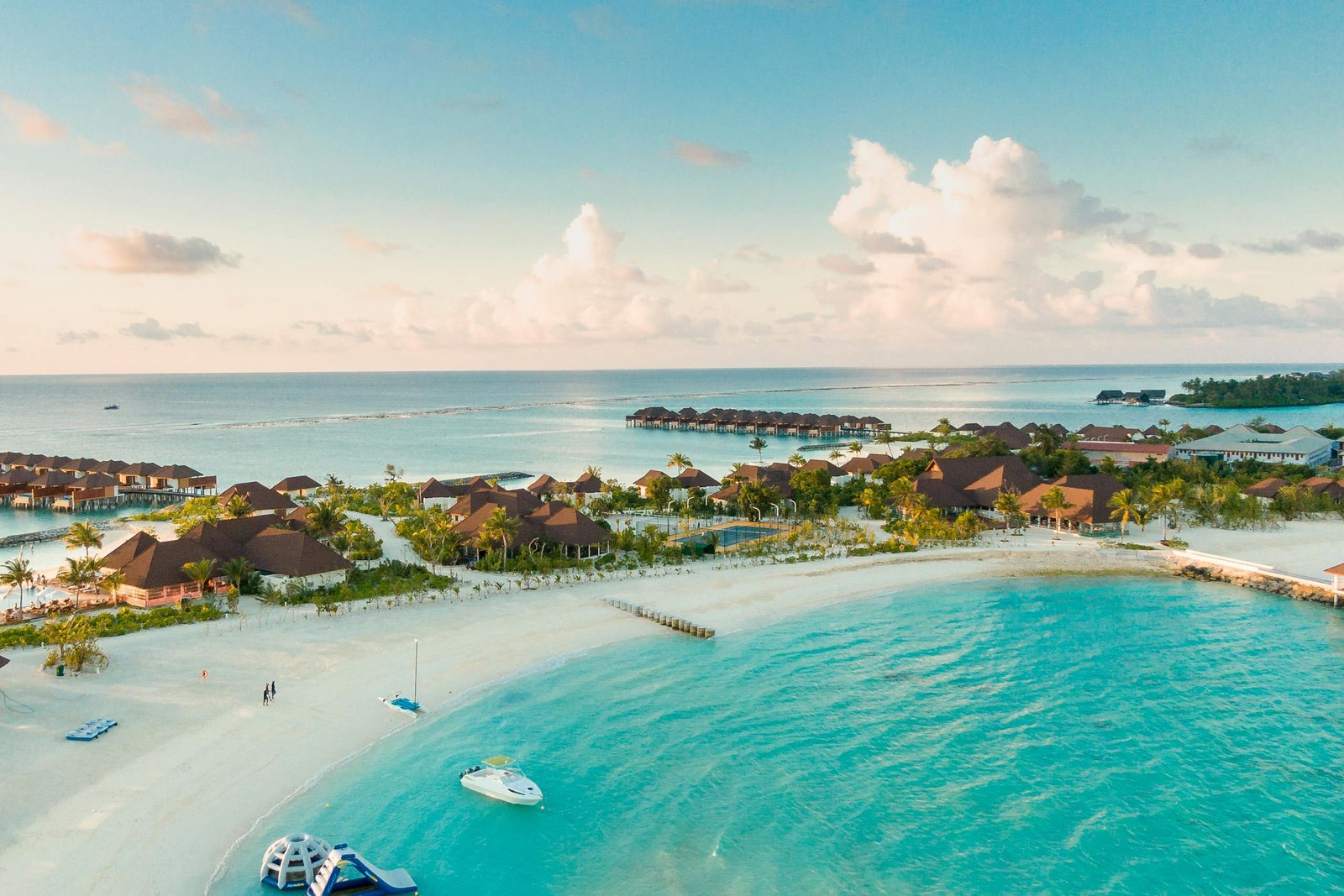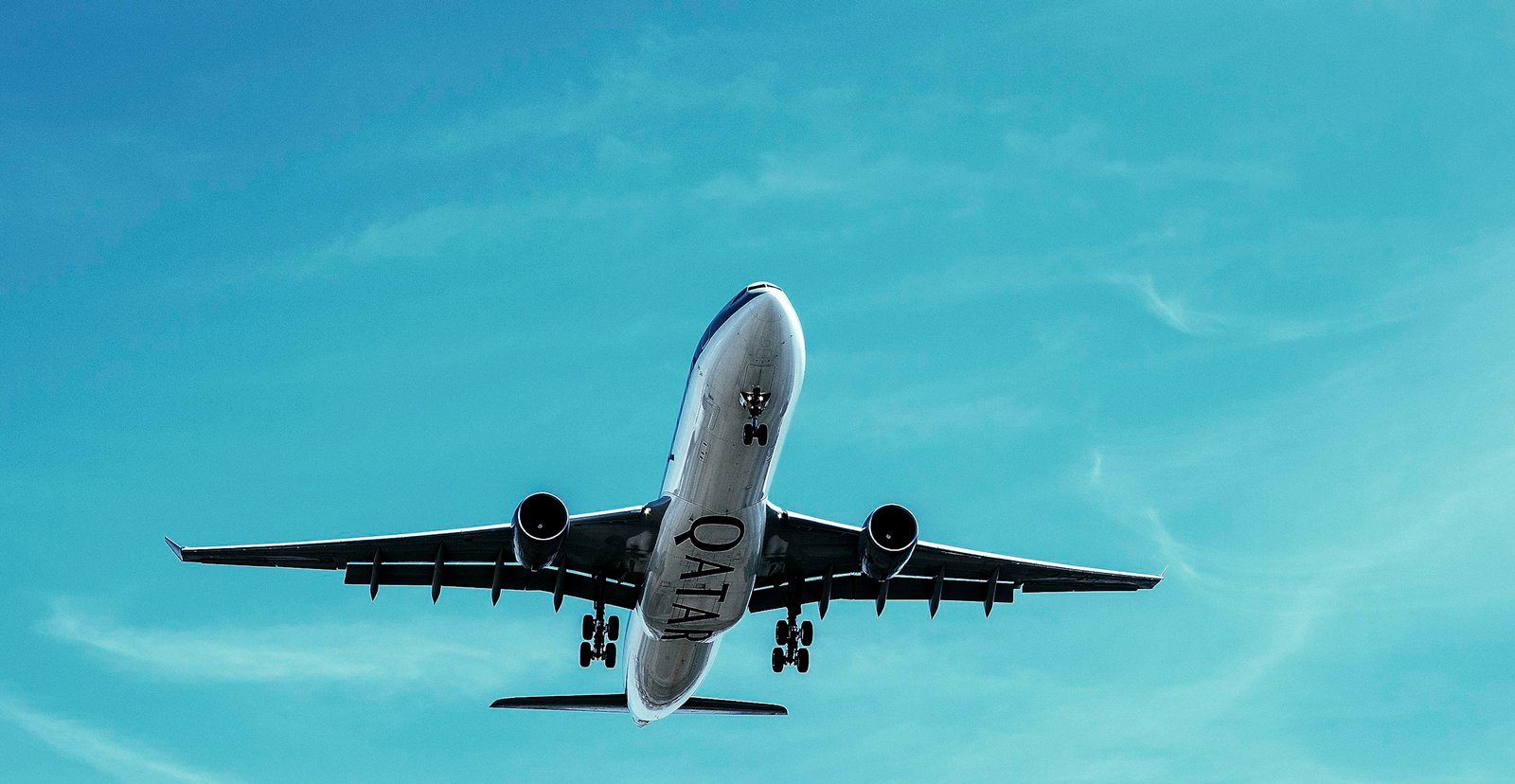Digital Detox Destinations: How to Unplug from Tech While Traveling
Introduction to Digital Detox
In an age where technological advancements shape nearly every aspect of our lives, the concept of digital detox has emerged as an essential practice for individuals seeking to reclaim their time and mental clarity. A digital detox refers to the intentional act of disconnecting from digital devices such as smartphones, laptops, and tablets, allowing individuals to focus on personal interactions and the natural world around them. This practice is becoming increasingly relevant as the pervasive influence of technology has resulted in information overload and constant distractions, leading to heightened stress levels and diminishing attention spans.
The need to unplug from these devices is often emphasized during travel, where the opportunity to forge genuine connections with people and places exists. Engaging fully with one’s surroundings can enhance the travel experience, providing a deeper understanding of different cultures and lifestyles. More travelers are now recognizing the value of immersing themselves in their environment rather than being preoccupied with capturing every moment on social media or checking notifications on their devices. The growing trend of seeking tech-free experiences during trips aligns with the desire for mindfulness and self-care.
Numerous studies highlight the mental and physical benefits of unplugging, including reduced anxiety, improved focus, and enhanced creativity. Disconnecting not only helps restore balance and reduces feelings of overwhelm but also encourages healthier habits by promoting outdoor activities and authentic conversations. As individuals embark on their journey of digital detox, they often discover a renewed sense of appreciation for the present moment and their surroundings, ultimately leading to a more rewarding travel experience. With a focus on wellness and mindfulness, the practice of digital detox is reshaping how individuals interact with their environments while exploring the world.
Benefits of Unplugging While Traveling
In an age where technology dominates our daily lives, taking a break from screens during travel presents numerous benefits that can significantly enhance one’s experience. One of the most notable advantages of unplugging is the improvement in mental clarity. Research indicates that prolonged use of technology can lead to cognitive overload, causing feelings of confusion and inability to focus. By disconnecting, travelers often report a rejuvenation of their mental faculties, allowing them to appreciate their surroundings more vividly, which could result in a more fulfilling travel experience.
Another key benefit is the reduction of stress levels. Studies have shown that constant connectivity may contribute to increased anxiety and stress, particularly when individuals feel compelled to be available at all times. When tourists choose destinations that encourage unhooking from devices, they often experience a marked decrease in stress, allowing them to immerse themselves in the moment. Activities such as hiking, exploring local cultures, or simply enjoying the tranquility of nature can create a sense of peace that fosters emotional well-being.
Furthermore, unplugging while traveling provides an exceptional opportunity to engage more fully with one’s surroundings. Without the distraction of mobile devices, travelers are likely to notice the subtle details in their environment, perhaps hearing the rustle of leaves or observing the interactions of locals in a market. This engagement can lead to richer experiences, fostering connections with the destination and its culture.
In addition, unplugging can lead to increased social interactions. Research suggests that when individuals are not preoccupied with their devices, they are more likely to initiate conversations with both fellow travelers and locals. These interactions can lead to meaningful connections and friendships, enriching the travel experience in ways that online communications cannot replicate.
Top Digital Detox Destinations
In today’s hyper-connected world, the need for a digital detox has never been more crucial. For those seeking to unplug and rejuvenate, several destinations stand out for their ability to facilitate a tech-free escape. These carefully chosen locations offer a serene environment, allowing travelers to disconnect from their devices while reconnecting with nature and themselves.
One such oasis is the Maldives, a collection of idyllic islands known for their crystal-clear waters and pristine beaches. Many resorts operate on a strictly no-technology policy, encouraging guests to immerse themselves in the natural beauty surrounding them. Whether soaking in a private hammock or indulging in a traditional spa treatment, the Maldives provides a perfect backdrop for relaxation, far removed from the distractions of modern technology.
For those looking for a mountain retreat, the Swiss Alps offer breathtaking landscapes devoid of technological interruptions. The region features numerous eco-lodges and cabins designed to promote a sense of tranquility. With endless hiking trails and stunning views, visitors can experience the peace of nature while being encouraged to leave their devices behind for a more meaningful experience.
Another noteworthy destination is Ubud in Bali, Indonesia. Known for its lush rice paddies and spiritual ambiance, Ubud is a hub for wellness and mindfulness. Numerous retreats in this area focus on meditation, yoga, and healthy living, providing ample opportunities to detox from digital distractions. The local culture emphasizes connection with the earth and self, making it an ideal place to retreat from the noise of technology.
Finally, the Canadian Rockies boast some of the most stunning landscapes in the world, with national parks like Banff and Jasper providing a perfect escape. With limited cell service and a focus on outdoor activities, this destination fosters an environment conducive to unplugging. The majestic surroundings invite visitors to embrace adventure and tranquility alike, making it possible to rejuvenate in an untouched wilderness.
Tips for Balancing Connectivity and Relaxation
In the age of constant connectivity, finding a balance between staying in touch and enjoying a tech-free travel experience can be challenging. However, implementing a few practical strategies can help facilitate this equilibrium during your travels. One effective approach is to set specific times to check messages. By limiting connectivity to designated intervals throughout the day, travelers can enjoy uninterrupted moments of relaxation while still remaining accessible when necessary.
Additionally, utilizing mindfulness apps can serve as a beneficial way to enhance one’s travel experience. Many applications are designed to promote relaxation through meditation, guided imagery, or gentle reminders to take breaks from screens. Engaging with these tools can not only assist in managing anxiety related to connectivity but can also enrich your overall travel experience. In turn, this encourages greater presence in the moment and fosters deeper engagement with the surroundings.
Exploring offline activities is another essential element of a digital detox. Activities such as hiking, reading, or journaling can offer a refreshing break from technology. Consider researching local trails or parks to immerse yourself in nature and enjoy physical activities that do not require digital devices. Similarly, bringing along a good book or maintaining a travel journal can nurture your creativity and provide a platform for reflection, both of which enhance the travel experience.
Ultimately, crafting a travel itinerary that accommodates both relaxation and necessary communication can lead to a more fulfilling experience. Incorporating moments for both unwinding and staying in touch ensures that you can enjoy the best of both worlds while away from home. Balancing these elements fosters a sense of well-being which is essential for truly enjoying a worthwhile trip.
Activities to Embrace During Your Detox
Embracing a digital detox does not necessitate surrendering to boredom; rather, it opens the door to a variety of enriching activities that can enhance your travel experience. One of the most beneficial pursuits is engaging in yoga sessions. Yoga provides a holistic approach to wellness by fostering physical strength and mental clarity. Participating in outdoor yoga classes amid serene landscapes can further deepen the experience, allowing individuals to connect with their environment while rejuvenating their minds and bodies.
Another highly recommended activity is nature hiking. Exploring picturesque trails not only offers physical benefits but also promotes mental well-being. Hiking allows travelers to immerse themselves in the natural world, providing opportunities to observe wildlife and appreciate the beauty of untouched landscapes. This reconnection with nature serves as a powerful reminder of the joys of being present in the moment.
Meditation practices are also highly effective during a digital detox. Engaging in mindfulness and meditation retreats can facilitate a deeper understanding of personal thoughts and feelings, promoting emotional balance. These practices can be conducted in tranquil settings, where distractions are minimal, enabling participants to focus on their inner selves without digital interruptions.
Additionally, local workshops present an excellent means of engaging with the local culture. Whether it’s attending a pottery class, cooking traditional dishes, or learning local crafts, these hands-on experiences foster a connection with the place and its people. They not only cultivate new skills but also enrich the journey with unique stories to take home.
Lastly, immersing oneself in cultural experiences—such as visiting historical sites, local performances, or art exhibitions—can profoundly impact one’s experience. By prioritizing these activities during a digital detox, travelers discover the fulfillment that comes from unplugging and reconnecting with the world in an authentic, meaningful way.
Planning Your Digital Detox Trip
Embarking on a digital detox trip requires thoughtful planning and consideration to ensure that the experience is both relaxing and rejuvenating. The first step in organizing this type of journey is selecting the right destination. Look for places renowned for their natural beauty, tranquility, and opportunities for outdoor activities. Locations such as national parks, remote beaches, or rural retreats can provide the serene environment necessary for a tech-free experience.
Once a destination has been chosen, the next consideration is accommodations. Opt for lodgings that promote a tech-free atmosphere, such as eco-lodges, glamping sites, or wellness retreats. These types of accommodations often emphasize disconnecting from technology, providing guests with a chance to engage with nature and each other. Verify whether the lodging has limited internet access or encourages guests to unplug by offering activities that focus on mindfulness, such as yoga or guided hikes.
Setting boundaries regarding technology use during your trip is also critical. Before you leave, define how long you intend to be disconnected. Will you abstain from all digital devices or keep a phone for emergencies only? Communicate these boundaries to your travel companions, ensuring everyone is on the same page. This collective commitment can foster deeper connections and shared experiences.
Finally, create an itinerary that favors relaxation and outdoor engagement. Prioritize activities that immerse you in nature, such as hiking, birdwatching, or stargazing. Allow your schedule to incorporate moments of unstructured time to simply enjoy the surroundings without the distraction of screens. By planning effectively, you can enhance your digital detox experience, providing yourself the opportunity to unwind and recharge fully.
Potential Challenges of Disconnecting
Embarking on a journey to disconnect from technology can present various challenges, often encapsulated by common emotions and urges. One of the most prevalent feelings that individuals face when attempting to unplug is the fear of missing out (FOMO). This anxiety is not unfounded; being constantly connected to the digital world creates a habitual expectation to stay updated on social media, news, and communications. The fear that important events or information may occur while one is offline can provoke significant stress and reluctance to fully engage in a digital detox.
Moreover, the habitual nature of technology usage may trigger connectivity urges, where individuals instinctively reach for their devices even in dedicated unplugged environments. This impulse can stem from a long-standing reliance on technology for communication and information, making the act of disconnecting feel unnatural. The temptation to check devices can result in a cycle of intermittent usage, undermining the purpose of a digital detox.
To effectively manage these challenges, self-awareness is paramount. Before embarking on a digital detox, individuals should recognize their triggers and the specific feelings that arise when they contemplate disconnecting. Preparing oneself mentally by setting clear intentions and expectations can ease the transition. In addition, establishing specific timeframes for unplugging can provide a comforting structure, enabling individuals to anticipate their return to technology without overwhelming anxiety.
Furthermore, developing alternative habits can offer a rewarding substitute for technology use. Engaging in activities such as reading, hiking, or attending workshops not only diverts attention from digital devices but also promotes mindfulness and presence. Ultimately, while the challenges of disconnecting may seem daunting, implementing proactive strategies can mitigate these hurdles and enhance the overall experience of unplugging while traveling.
Real-Life Experiences: Testimonials from Digital Detox Travelers
The journey towards digital detoxification can be transformative, as many travelers have discovered. One individual, Sarah, recounted her experience at a remote eco-lodge in Costa Rica. She arrived with a smartphone habit that precipitated anxiety and distraction. However, as she immersed herself in the natural beauty around her, she felt her relationship with technology begin to change. “The first couple of days were tough,” she admitted. “I regularly reached for my phone, only to remember I had put it away. But as I hiked through the rainforest and listened to the sounds of the waves, I started to reconnect with myself.” By the end of her stay, Sarah noted a profound sense of peace and a renewed appreciation for her surroundings, which solidified her commitment to incorporating digital detox periods into her life.
Another traveler, James, shared insights from his week-long retreat in the mountains of Colorado. With the emphasis on mindfulness and disconnection from technology, he felt an overwhelming sense of liberation. “Before going, I was skeptical about how a week without my laptop and social media would affect me,” he reflected. “But by the end, I realized just how tied I was to constant notifications and updates. Each day spent hiking and engaging with fellow participants shifted my focus from my device to the present moment.” His experience culminated in an epiphany regarding the importance of balancing technology with real-world interactions.
Furthermore, a mother, Lisa, talked about bringing her family on a digital detox camping trip. Initially, her children were reluctant to leave their screens behind. However, once they arrived at the campsite and engaged in activities like stargazing and storytelling by the fire, they found joy in these shared experiences. “We laughed more, talked more, and truly connected with each other,” Lisa shared. Such testimonials underscore the transformative power of stepping away from digital distractions and embracing moments of genuine connection and personal growth.
Conclusion
As we navigate our increasingly digital lives, the importance of taking a step back from technology cannot be overstated. Digital detoxing while traveling offers a unique opportunity to reconnect with oneself and with nature. By choosing destinations that promote a tech-free experience, travelers can fully immerse themselves in their surroundings and engage more meaningfully with the world around them. This practice not only enhances mental well-being but also fosters deeper connections with travel companions and the environment, ultimately enriching the overall travel experience.
During your next adventure, consider unplugging from technology and embracing the serene atmosphere of a digital detox vacation. Explore remote locations, engage in outdoor activities, or participate in mindfulness practices that encourage reflection and relaxation. Such experiences can reinvigorate your mind and spirit, allowing you to return home with a fresh perspective and renewed energy.
I invite you to share your insights and experiences related to digital detox journeys. Whether you have recently enjoyed a technology-free getaway or are planning one for the future, your thoughts can inspire others to embark on similar travels. I encourage you to comment on this post with your reflections or to share this information with others who may benefit from a digital detox while traveling. Together, let’s promote the idea of unplugging and reconnecting with what truly matters. Plan your own digital detox journey today and see how it can transform the way you experience the world.
Avi is a researcher educated at the University of Cambridge, specialising in the intersection of AI Ethics and International Law. Recognised by the United Nations for his work on autonomous systems, he translates technical complexity into actionable global policy. His research provides a strategic bridge between machine learning architecture and international governance.







